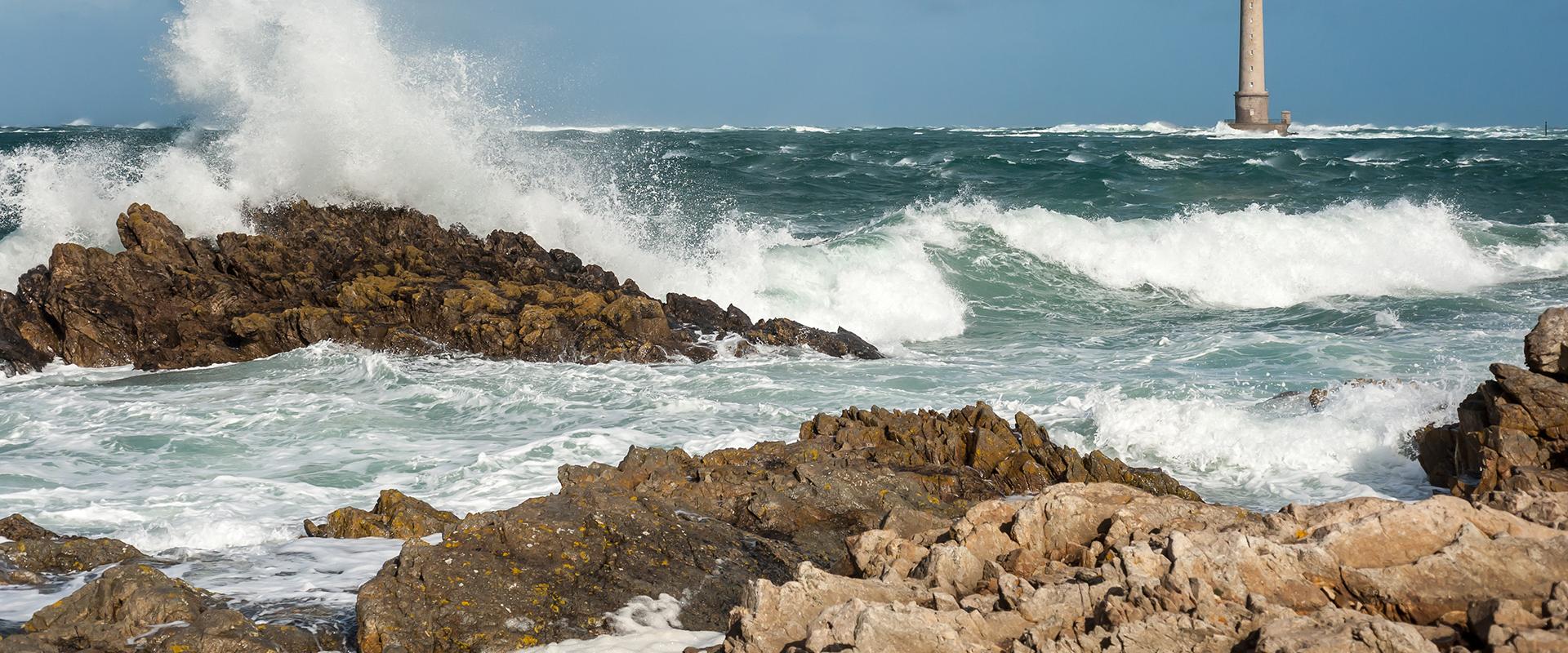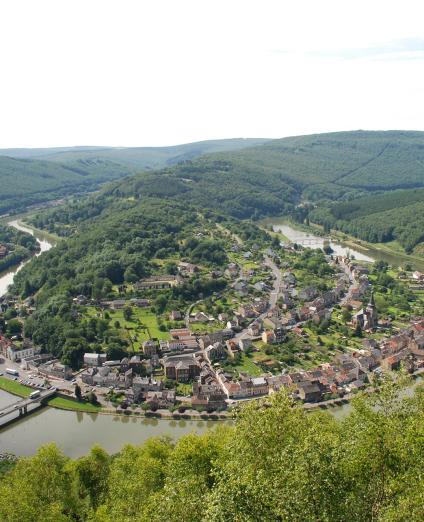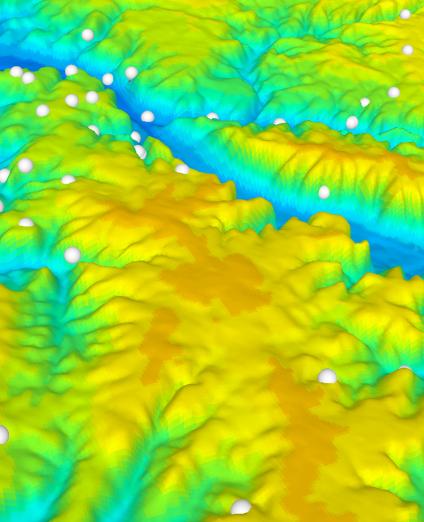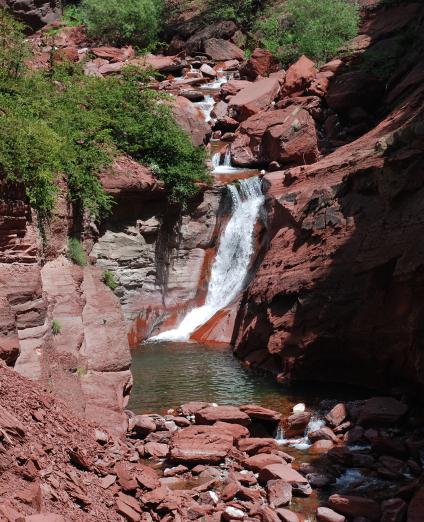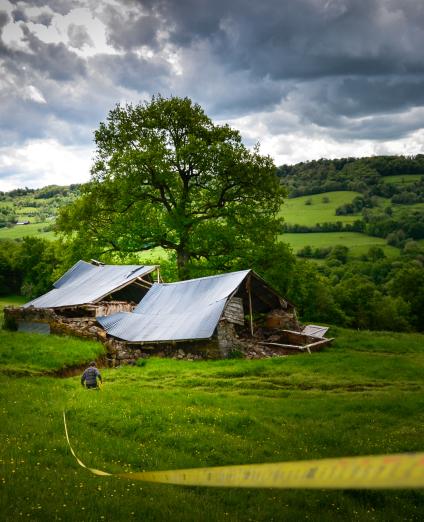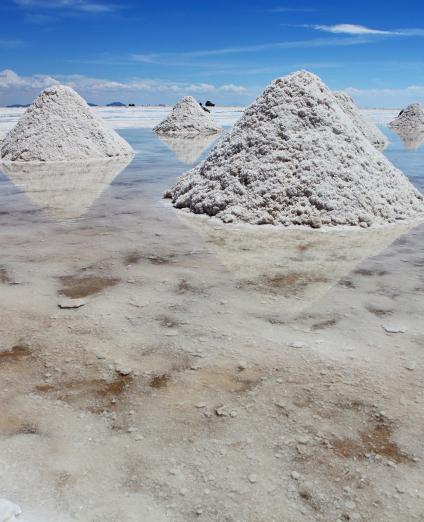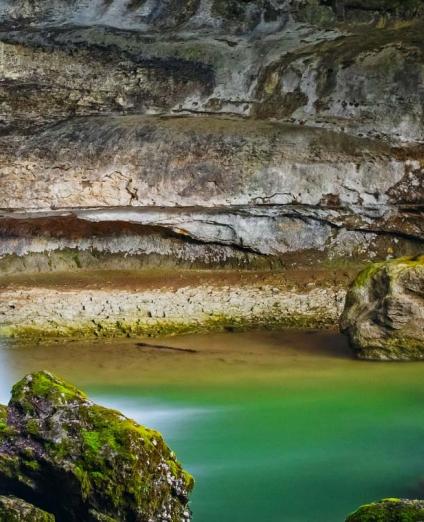“Historical Storms and Coastal Flooding” 2020 webinar
At a REFMAR event in 2016, interest was expressed in establishing a multidisciplinary working group to study historical coastal flooding and storms.
Since then, engineers, researchers, statisticians and historians from a wide range of organisations, including IRSN, EDF, SHOM, BRGM, Artelia, UPLC 17, Cerema and LIENSs have been meeting as the “Historical Storms and Coastal Flooding” working group to pool information on this topic into a shared database. The database developed by IRSN was then selected by the group members as a suitable tool for sharing contributions from each organisation.
The objective of this one-day seminar hosted by BRGM was to review the work accomplished by the group since its creation 4 years ago and to discuss future developments. Another objective was to look at how historical data were used in other geographic areas (Flanders) and other fields dealing with risk (e.g., seismic risk and river flooding).
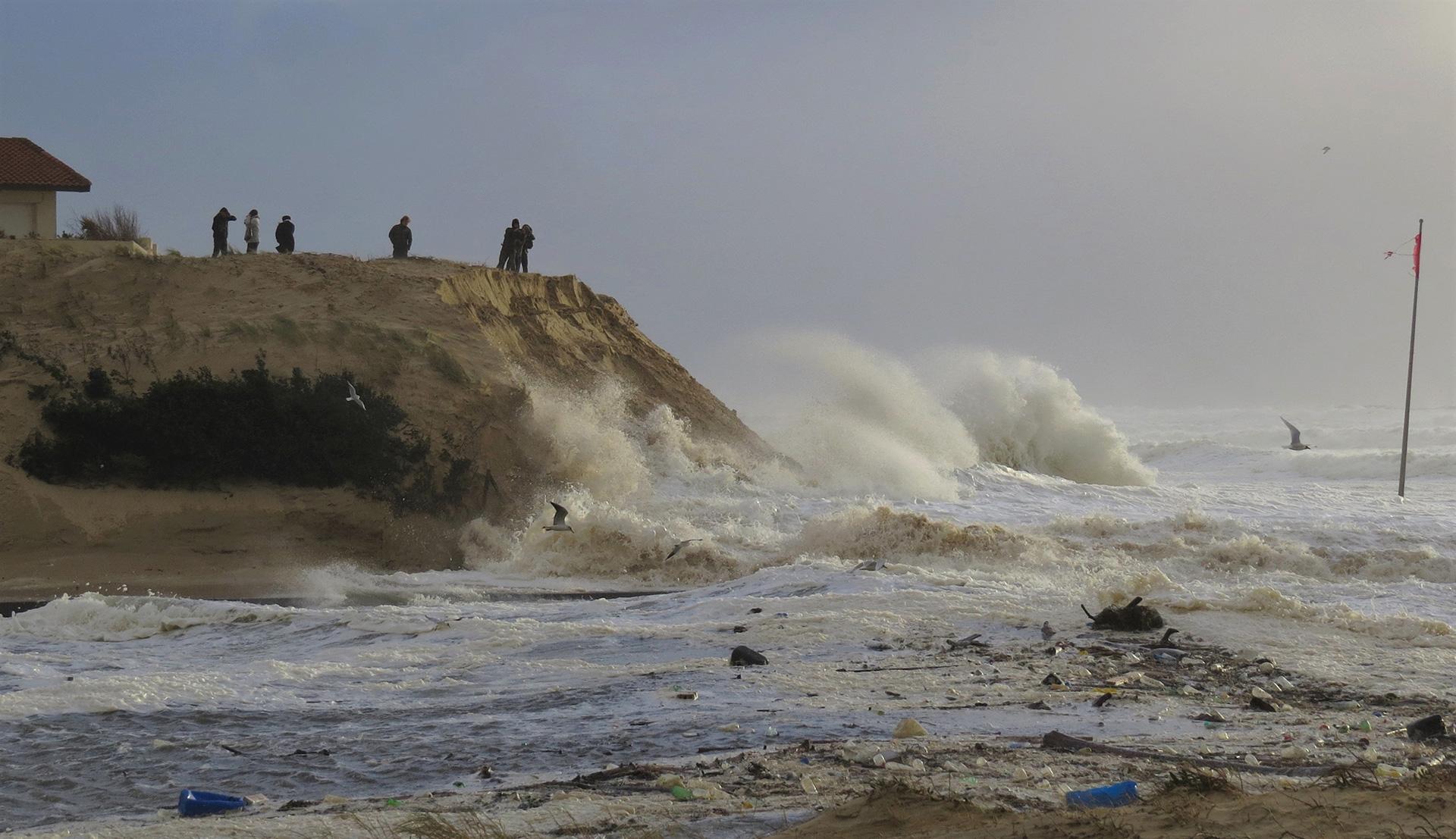
Key figures
-
8.00partners
-
18.00speakers
-
100.00participants on the day
-
50.00people on average for the 2 sessions and the panel discussion
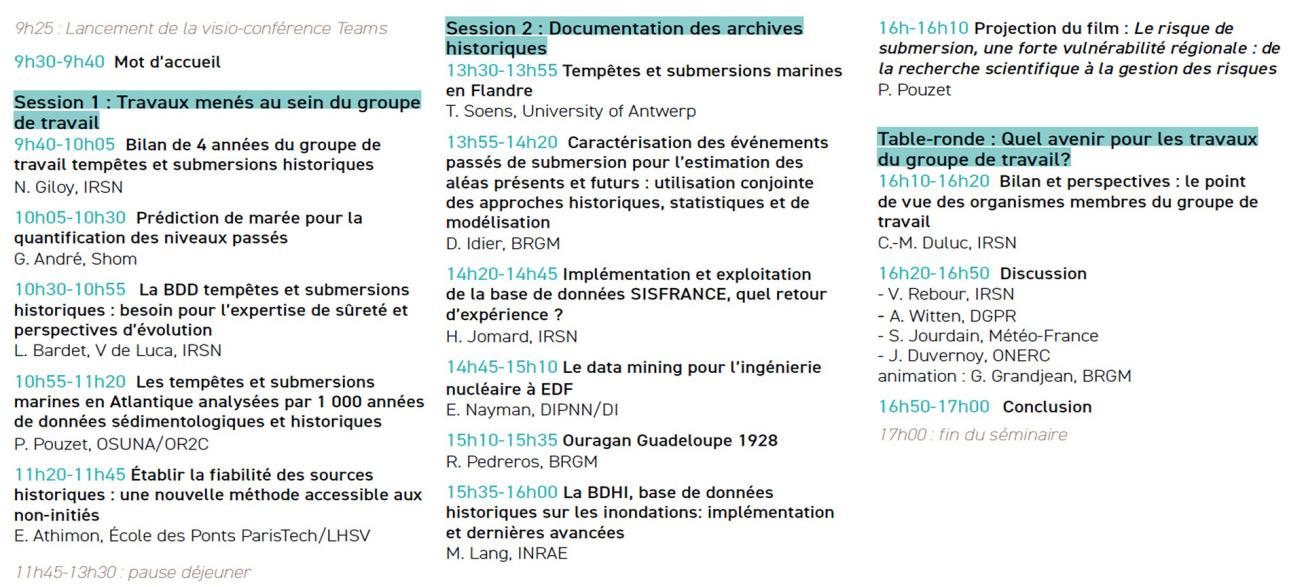
Agenda of the 2020 “Historical Storms and Coastal Flooding” seminar.
© BRGM
Welcome address
The welcome address was given by Karim Ben Slimane, Director of BRGM’s Risks and Prevention Division, who talked about his experience of managing risk for the nuclear industry (at IRSN, the French Institute for Radioprotection and Nuclear Safety). He highlighted the significance of both coastal hazards and climate change impacts for BRGM, particularly with regard to the Agency's research activities and consultancy and expert appraisal work, both abroad and in support of the French regional authorities.
He noted that coastal flooding was a major challenge for communities considering population growth in coastal regions, industrial and power production, and increased vulnerability due to climate change and sea level rise.
He thus stressed the need to better document historical storms and their impacts.
Session 1: Work carried out by the working group
Moderator: Nathalie Giloy (IRSN)
Review of the work carried out by the “Historical Storms and Coastal Flooding” working group since its creation four years ago
Nathalie Giloy (IRSN) looked back at the working group’s achievements, reviewing the work completed and taken forward in four years. She was optimistic about the future of the working group, which had several promising projects under way and in the pipeline.
Tidal prediction for the quantification of past levels
Gaël André from SHOM presented 2 methods for the assessment of high-tide surge as part of SHOM’s contribution to the working group.
The historical storms and coastal flooding database: the need for safety expertise and future database developments
Lise Bardet discussed the needs of IRSN and how these had shaped the group’s work and the building of the database. Vincent de Luca presented the technical criteria used to develop/update the database.
Storms and coastal flooding in the Atlantic analysed through 1000 years of historical sedimentological data
Pierre Pouzet from the Nantes-Atlantic Observatory for Sciences of the Universe (OSUNA)/Observatory for Coastal Risks in Pays-de-la-Loire (OR2C) presented his work on the dating of extreme events based on marine sediments carried inland during flooding, particularly in marshes. He discussed several methods, including a comparison with the historical approach.
Establishing the reliability of historical sources: a new method for the layperson
Emmanuelle Athimon, from the Saint-Venant Hydraulics Laboratory (LHSV), presented the work she has carried out in close collaboration with the “Historical Storms and Coastal Flooding” working group. Improved analysis of historical documents and data is required to investigate extreme events (e.g., earthquakes, river and coastal flooding and avalanches). Such material, however, needs to be critically assessed before it can be used. Athimon discussed a novel method accessible to non-experts.
Session 2: Documenting historical records
Moderator: Marc Andreevsky (EDF R&D)
Storms and coastal flooding in Flanders
Tim Soens, a historian at the University of Antwerp, presented his work focusing on extreme storm and coastal flood events in Flanders.
Describing past coastal flooding events to estimate current and future hazards: combining historical, statistical and modelling approaches
Déborah Idier from BRGM discussed several methods implemented as part of the RISCOPE research project. This combines historical, statistical and numerical modelling approaches to develop a coastal flooding warning system.
Implementing and operating the SISFRANCE database: sharing experiences
Hervé Jomard (IRSN) talked about SISFRANCE, a seismic database developed by EDF, IRSN and BRGM.
Improving our understanding of historical earthquakes by using data mining techniques
Emmanuelle Nayman, a seismologist at EDF discussed data mining and its applications to nuclear engineering.
The 1928 hurricane in Guadeloupe
Rodrigo Pedreros from BRGM presented a study carried out in Guadeloupe drawing on historical research work by Jérôme Lambert to describe a devastating hurricane that occurred in 1928 through numerical modelling.
Implementation and latest developments of the historical database on flooding (BDHI)
Michel Lang from the French National Research Institute for Agriculture, Food and Environment (INRAE) looked back at the development of the BDHI in the 2010s with Denis Cœur.
Film screening: High regional vulnerability to the coastal flooding hazard – from scientific research to risk management
Documentary presented by Pierre Pouzet and Emmanuelle Athimon.
Panel discussion: what does the future hold for the working group?
Claire-Marie Duluc, Deputy Head of IRSN's Site Characterisation and Natural Hazards Department, introduced the panel discussion by asking each group member organisation what they thought about the work carried out so far and the group’s potential work in the future.
The following people participated in the discussion:
- Aude Witten, from DGPR/SRNH of the Central Service for Hydrometeorology and Flood Forecasting Support (SCHAPI), and SCHAPI’s Deputy Director in charge of regional and local policies (as of 17/12/2020);
- Vincent Rebour, Head of IRSN's Site Characterisation and Natural Hazards Department;
- Sylvie Jourdain, in charge of data rescue activities at the Climatology and Climate Services Division of Météo-France;
- Jérôme Duvernoy, Project Manager at the National Observatory on the Effects of Global Warming (ONERC).
The discussion was moderated by Gilles Grandjean, Programme Director for Natural Risks and the Resilience of Regions at BRGM.
Conclusion
Gilles Grandjean concluded the panel discussion and seminar with four points:
- the strong interest expressed by government agencies and decentralised departments on past, current and future extreme weather and marine events;
- the diverse nature of the work already undertaken by the group, which has enabled knowledge to be capitalised from these events;
- the working group provides an informal, flexible working environment for the partners involved, who can participate on a best-effort basis;
- and lastly, he emphasised the value of the multidisciplinary work undertaken for improving our understanding of past storm and coastal flooding events and better predicting future ones.

Logos of the 2020 “Historical Storms and Coastal Flooding” seminar partners.
© IRSN / EDF / SHOM / BRGM / Artelia / The People’s University of the Charente Coast (UPLC 17) / Cerema / LIENSs

